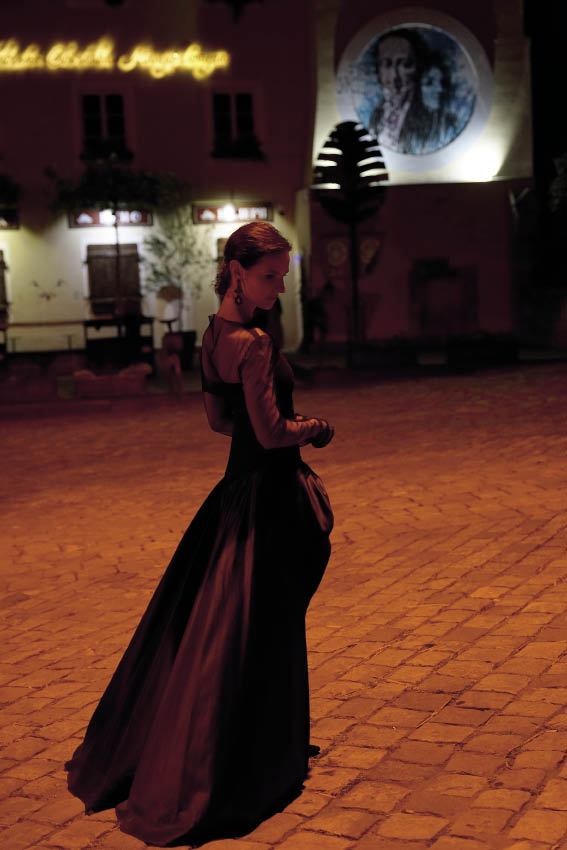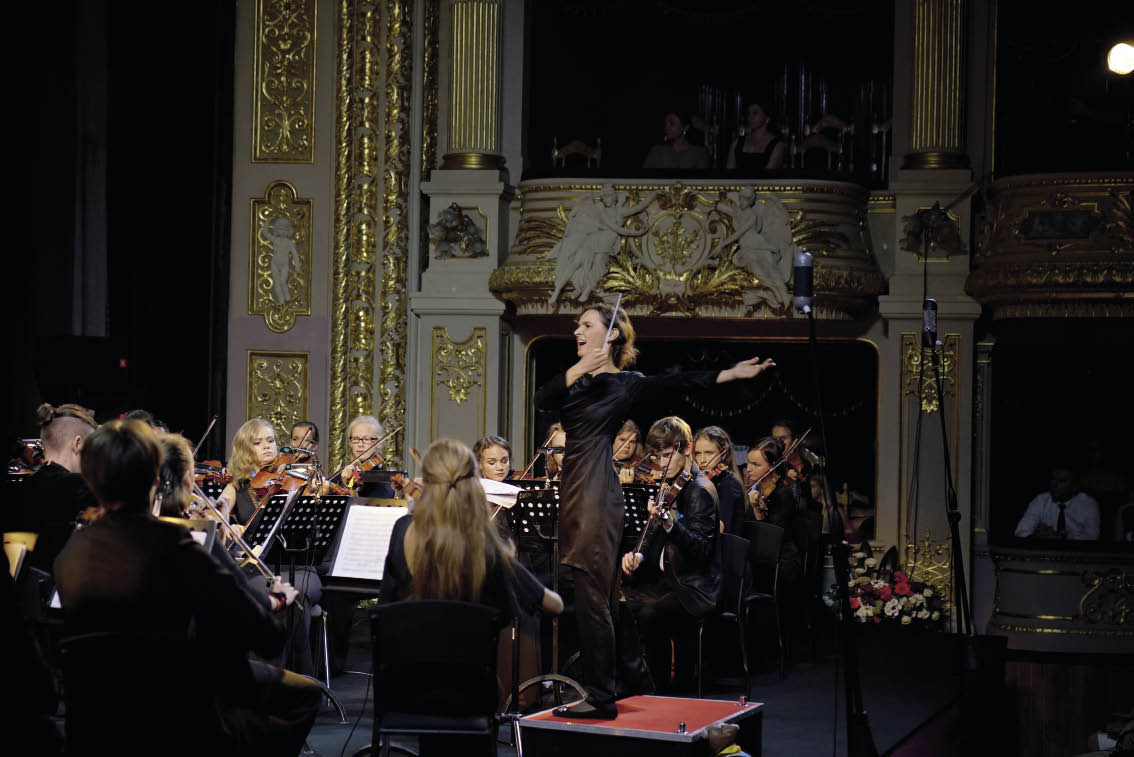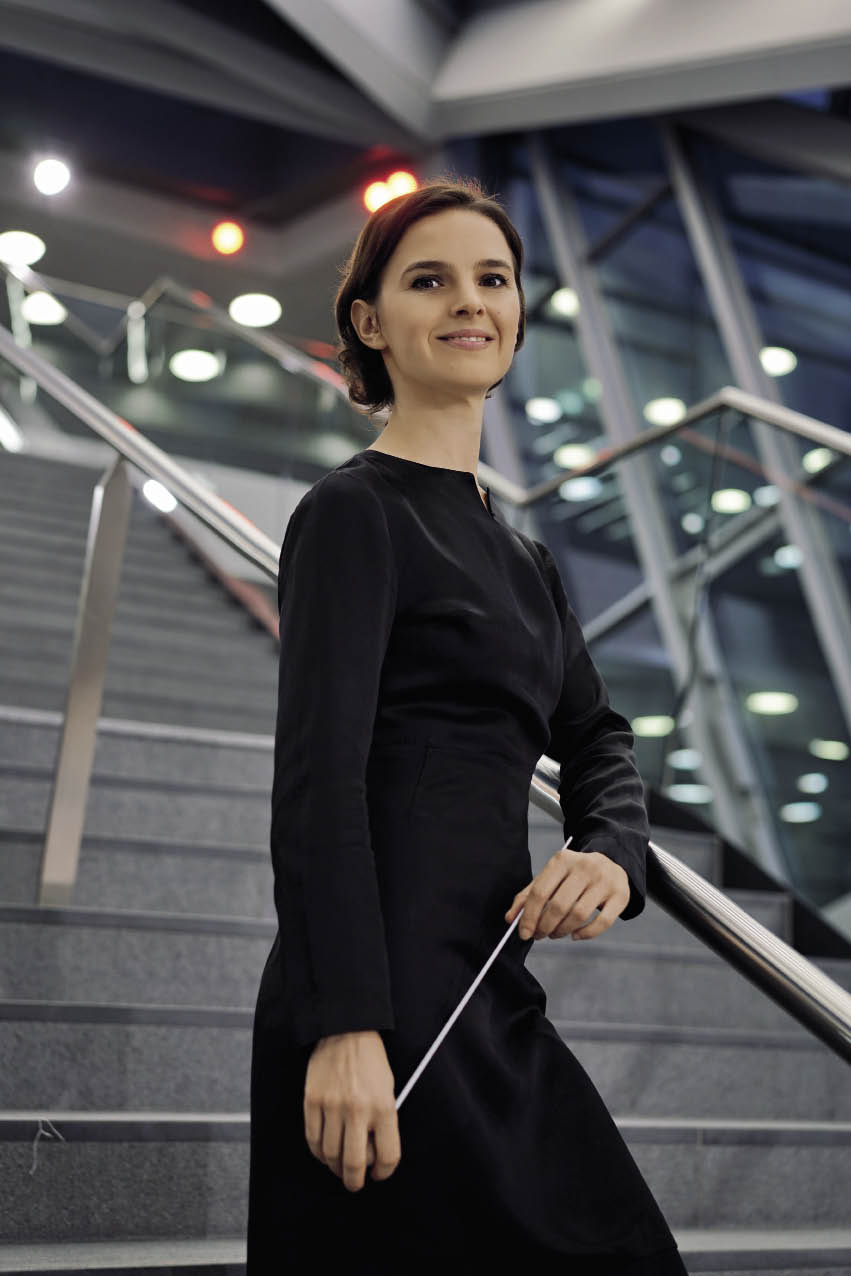Оksana is the first woman to be appointed chief conductor of the famous opera house in Austria's Graz. She is the third woman to conduct the Bavarian State Opera in the 100 years of its history, and one of the most successful female conductors of a younger generation. Oksana is the mastermind, co-founder and art director of LvivMozArt festival. She is also the founder of the Youth Symphony Orchestra of Ukraine.
– When did you realise that music was your call?
II guess I was born with this mission in my mind. Since my kindergarten days, whenever someone asked me who I wanted to be, I would answer that I wanted to be a musician like my parents. Music was an important part of my family's life. My parents are professional musicians and my father's father was a choral conductor. There was always music in our house: during festive dinners [smiling], and when my parents practised ahead of concerts. Playing was an absolutely natural part of the daily life of all family members. And, certainly, as I was a musically gifted child with a delicate sense of music, I longed for advancing my skills.
– What were your main career highlights?
First, it was the decision to study in the Lviv Music Academy at the Department of Opera and Symphony Conducting.
Second, after several years in the Lviv Music Academy, I realised that beyond the border there are world-acclaimed top-level orchestras and opera houses. And I understood that if I really wanted to get to the top in my profession, I should move in this direction and set my goals high, without resting on my laurels.
Third, when in 2013, as an accomplished conductor, I joined the Bavarian State Opera as an assistant to the music director-general, it was crystal clear that I would have to take a very difficult exam, make another true leap forward again, to become an internationally-recognised independent conductor, or remain just an assistant. And I did it!
– Let us talk about gender equality. Is it still difficult for talented women to make a conductor's career nowadays?
The German Ministry of Culture carried out a study in 2016. The statistics are self-explanatory: gender inequality is still a painful issue in the 21st century. Of course, the conducting profession has its own nuances associated with professional demands, but there are only 4% of chief female conductors in the world!
– What a truly telling and sad figure indeed! What keeps you going in this situation?
One well-known conductor, whose master class I once attended, asked me why I was in this profession. The question was rather provocative, if not offensive, as if it had the subtext – why do you bother at all? I was the only woman in the class of nine. And I don't think he asked this question anyone else in the group. I said that I was in the profession because I was doing it well and I got job offers, and because I had years of successful experience, I was not going to give up! What keeps me going? I keep faith in high ideas and good results. Perseverance in achieving goals. Inspiration, confidence and strength to go further are born out of this.
– What is your credo?
One of the God's greatest gifts to people is the gift of choice. People can choose the path of creation to change the world for the better, or go the opposite way of destroying the world, or stay where they are and live life for themselves, for their own comfort, without seeking to exert any effort, without developing the energy of creativity in the general human sense. And it is this question of choice that is relevant to me every day. Every evening I ask myself: what have I lived for today? The most important thing for me is not to waste time, but to be a co-creator of my life, the life of our country and that of our entire civilisation.
– You have performed in many countries. How does the audience differ from country to country?
Listeners in Munich, like no other, pay attention to the conductor's performance. For me, it was an interesting experience. Bavarian music lovers do not care how well-known a musician is. Even if it is a debutant, because what is important for true connoisseurs is the level of professionalism. And I'd like to note a very demanding audience at the Beethoven Festival in Bonn. At the last concert (in September 2017 – Ed.), I felt like I was standing a test in front of a highly qualified commission. They paid attention to every sound, every detail of the performance... And a long ovation after my concert brought relief and joy. (smiling) For instance, the audience in Barcelona is very emotional, waiting for the play to end to get to know the conductor and thank them. Catalonia gave me a very warm reception. (smiling)
– These are some interesting observations reflecting national peculiarities. How is old and new Ukrainian classical music perceived abroad?
I always try to make sure that my concerts include pieces by Ukrainian composers. As I get increasingly more popular, I can put forward my own conditions if an orchestra wants me to conduct it. One of such conditions is that the programme must include Ukrainian composers' works. That is how I'm trying to exert influence. (laughing) I am extremely proud to read the reviews highlighting the performance of Ukrainian music. According to critics, Ukrainian masterpieces deserve a broader presence in the world's best halls. Just recently, my concerts in Munich featured pieces by Zoltan Almashi, Myroslav Skoryk, Oleksandr Kozarenko, Borys Lyatoshynskyy, Yevgen Stankovych and Valentyn Sylvestrov.
– It is fair to call you a culture ambassador of Ukraine. Have you noticed any change in the way Ukraine is seen abroad from the cultural perspective?
I've noticed indeed! A shift in the perception of Ukraine happened after the revolution, after the tragic events. Finally, Europeans realised that Ukrainians are an original nation, a distinctive culture and an independent state. I feel that Europeans would like to get to know us better. And we need to be as active as possible now to show the world all the best that we have, especially in the intellectual and cultural areas.
– What are your favourite travel destinations?
The best place for true artists is where they can express themselves in full. I'm happy to be able to get to know new orchestras and opera houses all over the world. The geography of my performances is expanding constantly. I'm heading for Norway for Christmas concerts, while further plans include the USA and other countries and continents. Doing the job is awesome but no matter how much you love it, it cannot fill up your entire life. Therefore I always try to find at least a couple of days for myself to come home and recharge on its warmth and love.
– What are your favourite spots in Ukraine?
The Carpathians, of course, and Verkhovyna, the heart of the Hutsul culture. The Arabat Spit, a sandy narrow stretch of land of unprecedented size. And my native land, Brody in Lviv Region. My dear Lviv castles in Olesko and Pidhirtsi. The sacred places of my childhood are a magic hill and an old monastery in Pidkamin… I just love coming there! (smiling)
– What advice would you give to a foreigner who only came to live or do business in Ukraine?
Have a lot of patience!!! (laughing)
– Could you sketch your short-term plans please?
What concerns me the most is the integration of the Ukrainian culture into the European and global context. I would like to able to visit any European bookstore to find translations of classical and modern Ukrainian literature and not just in single copies but the whole stands like those of French, Italian and Russian books... The same is true for music... I dream of living up to the happy days when the Ukrainian culture is no longer marginal, "locked up in the ghetto" of its own country, but enjoying the spotlight among other cultures of interest to the entire world. To achieve this very important goal, Ukraine must do much more in every sense and area!
Interviewed by Myroslava Makarevych
Photos: provided by Oksana Lyniv
Oksana Lyniv: The Talent Code
A third-generation musician, beautiful, charismatic and incredibly talented, Oksana Lyniv won recognition as a conductor with the demanding and discerning audience in Europe. In Germany, which has a true cult of music, Oksana Lyniv was recognised as an outstanding conductor and awarded the Star of the Year 2015 title.»







